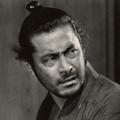Robin Marx reviewed Number9Dream by David Mitchell
Review of 'Number9Dream' on 'Goodreads'
2 stars
I enjoyed [b:The Thousand Autumns of Jacob de Zoet|7141642|The Thousand Autumns of Jacob de Zoet|David Mitchell|https://images.gr-assets.com/books/1320540908s/7141642.jpg|7405757], and when I discovered Mitchell had an earlier book set in Japan, I was eager to check it out. While there are some great moments and I was eager to see where the story led, overall I was disappointed.
This book tells the story of a Miyake Eiji, a youth from rural Japan who travels to Tokyo in a search for the father he never knew. Eiji also has a propensity for vivid dreaming, both of the waking and nocturnal varieties, and as a result the line between real world events and fantasy are frequently blurred.
The book is at its best when Mitchell describes Tokyo (a city in which I've lived nearly half my life) and the island of Yakushima (which I've had the pleasure of visiting), but the surrealistic interludes became more and more unwanted and intrusive as the book continued. Very few of them enhanced or illustrated the core narrative, and the recurring "Goatwriter" meta-fiction sequence was particularly extraneous and masturbatory.
Apparently this book was a sort of blatant homage to Murakami Haruki (who is name-checked in this book), and had I known that in advance, I wouldn't have bothered. I've assiduously avoided reading Murakami, as everything I've heard about his work has convinced me that his work is tepid surrealism for boring people too timid to venture outside of the capital-L Literary ghetto and pick up a decent fantasy or weird fiction novel. The more tedious portions of this book certainly mesh with the perception I've formed of Murakami's work.
I'm a big fan of surrealism, from classics like Robert Chambers' [b:The King in Yellow and Other Horror Stories|129798|The King in Yellow and Other Horror Stories|Robert W. Chambers|https://images.gr-assets.com/books/1416873291s/129798.jpg|954927] to more modern work by people like China Mieville, but it just didn't work for me in this book. The more grounded parts of the story — like Eiji's childhood interactions with his sister, reading his grandfather's diary, his letters from his mother, even his somewhat unconvincing romance with a piano student — worked far better than the dream interludes.
Even more so than the hallucinatory fever dreams, it was the dialogue of this book that I found the most unrealistic. The characters all spoke like New York literary novel cut-outs, not living and breathing Japanese people. All of the customer service staff presented throughout the book speak in aggressive or dismissive manners that ring false to anyone who has spent any amount of time in Japan, for example. His characters are all demonstrative and outspoken, not indirect or concerned with propriety or hurt feelings in the way most Japanese people tend to be with acquaintances and coworkers. Early on in the book there's even a pun ("Company?" "No, I came alone") that only works if the Japanese characters are speaking to each other in English. Mitchell apparently spent eight years living in Hiroshima and has a Japanese wife, but I suspect he never picked up much of the language. His portrayal of Japanese people is frustrating because his portrayal of Japan itself is so good.
Mitchell is a talented writer, there are glimmers of that here, but he wastes too much verbiage on stylistic trickery when a more straightforward approach would suffice. There's an entertaining portrayal of Japan and a nicely human story here, but it's absolutely suffocated by literary wankery and cruft.

